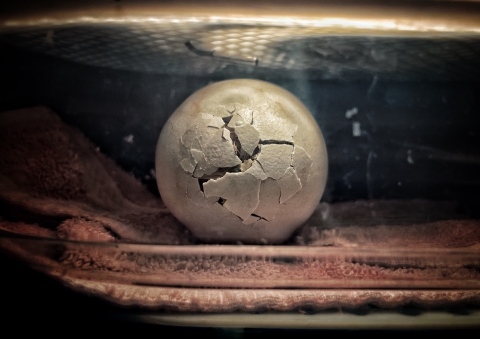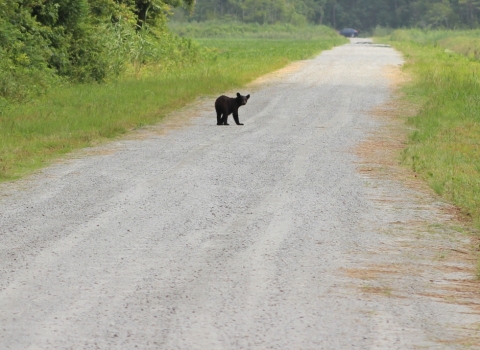As of October 15, 2024, the Incident Command established to respond to Highly Pathogenic Influenza (HPAI) in California condors will be rescinding the delegation of authority. HPAI continues to be a threat on the landscape for birds and other wildlife, especially as the virus evolves, however, there has not been an outbreak in condors since spring 2023.
The Incident Command remained intact beyond the 2023 outbreak to manage and implement vaccinations and support recovery partners in upgrading facilities with improved biosecurity measures. When the virus jumped to dairy cattle in 2024, there was concern about potentially impacting condors, as this is a proffered food source provided to release birds. Luckily, there have been no incidents of HPAI spreading from cattle to condors as of this report.
As the Incident Command closes out, California condor recovery partners will continue to vaccinate wild and captive condors and monitor the spread of HPAI in dairy cattle and throughout the know range of California condors, taking all precautions to minimize the risk of another outbreak.
Although the death of 21 condors in Arizona is a set-back for condor recovery, the coordinated response by partners is a testament to the resilience of the Condor Recovery Program, our partners, and the species. This is exemplified in the one egg, now known as Milagra, that was salvaged, hatched, fostered, and successfully released in Arizona in September. We want to thank all the recovery partners and supporters for collaborating in the response and continuing to work towards recovery of the condor.
HPAI Impacts to Free-Flying Condors
- The HPAI outbreak was restricted to the Southwest flock (Arizona and Utah).
- Total mortality: 21 condors.
- Breeding pairs impacted: 8 breeding pairs (13 individuals deceased).
- Natural antibodies to the H5N1 HPAI strain detected in 52% (25 of 48) individuals sampled.
HPAI surveillance testing of condors ranging in California has not yet detected natural exposure.
Incident Command Response:
Vaccine Trial
- Vaccine trial successfully documented the vaccine was safe in black vultures and condors.
- USGS report on vaccine trial completed on August 19, 2024.
- A manuscript focused on the trial results is currently being drafted.
Vaccine Implementation (ongoing in captive and free-flying birds)
- To date, 207 condors have been vaccinated for HPAI.
- 141 have been fully vaccinated (prime and boost).
- 134 of these birds are free-flying.
- Vaccine reactions
- Two captive birds were observed to have adverse reactions to the vaccine. Veterinarians were able to respond and intervene. Both condors have recovered and are doing well.
- Other intermediate or mild reactions have resolved naturally overtime.
- Antibody titers in vaccinated condors are being monitored to inform vaccine implementation and schedule. Work is conducted via partnership with NPS, USDA, and Southeastern Cooperative Wildlife Disease at the University of Georgia.
Infrastructure and Management Changes
- Emergency funding received through the Fish and Wildlife Service’s State of the Birds program supported personal protective equipment (PPE) for staff handling birds and equipment for improving biosecurity and biosafety, as well as infrastructure improvements such as new holding pens for release birds, additional enclosures to treat distressed birds, expanded care and quarantine facilities across California and Arizona.





